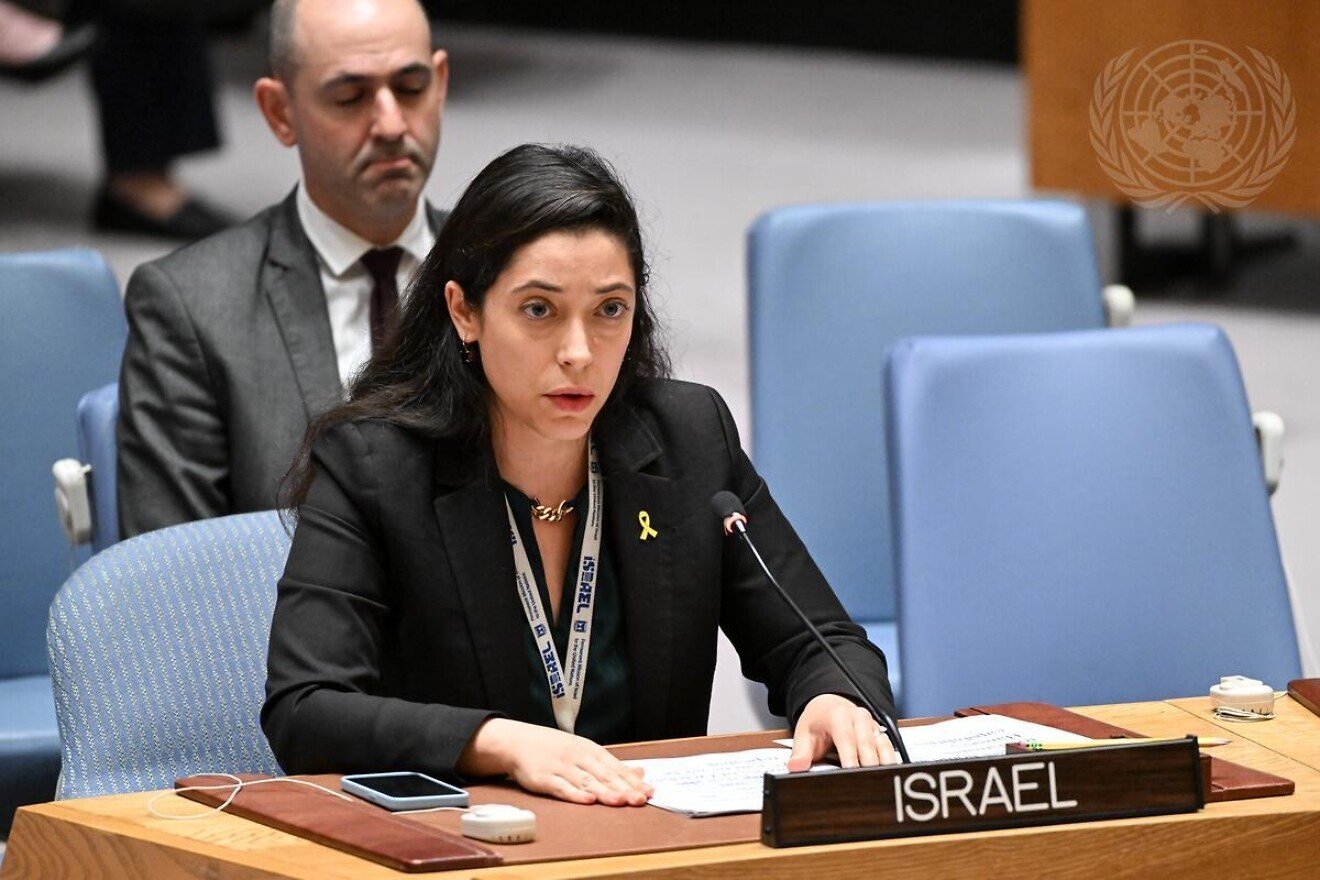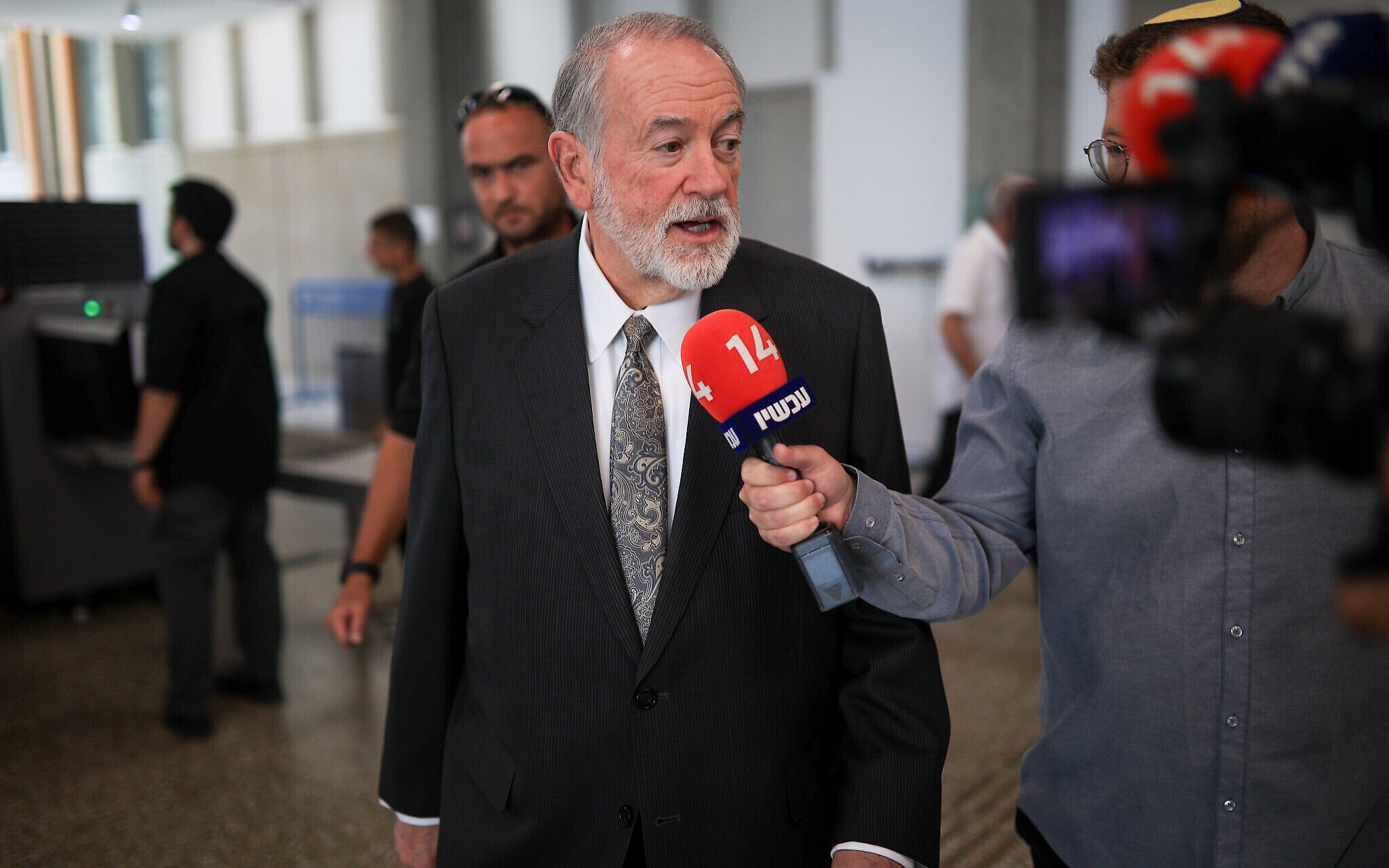Russian President Vladimir Putin gestures during a meeting at the Kremlin in Moscow, Russia, August 6, 2024. (Gavriil Grigirov, Sputnik, Kremlin Pool Photo via AP)
Russian President Vladimir Putin has asked Iran’s supreme leader Ayatollah Ali Khamenei for a restrained response to Israel’s suspected killing of the leader of Hamas, advising against attacks on Israeli civilians, two senior Iranian sources told Reuters.
The message, according to the sources, was delivered on Monday by Sergei Shoigu, a senior ally of the Kremlin leader, in meetings with top Iranian officials as the Islamic Republic weighs its response to the assassination of Hamas terror group leader Ismail Haniyeh.
The assessment that Iran is likely to attack Israel in the coming days or weeks follows last week’s back-to-back assassinations of Hezbollah military chief Fuad Shukr in an Israeli strike in Beirut and Haniyeh in Tehran. Iran has blamed Israel for Haniyeh’s death and has vowed to retaliate.
Tehran also pressed Moscow for the delivery of Russian-made Sukhoi Su-35 fighter jets, the two Iranian sources, privy to the meeting in Tehran, told Reuters.
In Moscow, the Kremlin did not respond to a request for comment. State-run RIA news agency reported on Tuesday that Shoigu said he discussed Haniyeh’s killing on his Tehran visit.
The two sources with knowledge of the matter did not provide further details on the talks with Shoigu, who was defense minister before becoming the secretary of Russia’s security council in May.
They said Shoigu’s visit was one of several avenues Moscow had used to relay to Iran the need for restraint while at the same time condemning Haniyeh’s killing as “a very dangerous assassination,” in a bid to prevent a Middle East war.
The Middle East, the sources said, was on the brink of a major war and those behind the assassination were clearly trying to trigger such a conflict.
Russia has cultivated closer ties with Iran since the start of its war with Ukraine and has said it is preparing to sign a wide-ranging cooperation agreement with Tehran.
There was no immediate comment from Iran’s foreign ministry. On Monday it said Tehran did not seek to raise regional tensions but needed to punish Israel to prevent further instability.
Diplomacy no longer an option
In Washington, an official from the Biden administration warned on Monday of the risks of a major regional conflict. The official, who spoke on condition of anonymity, emphasized that the scale of Iran and its Lebanese proxy terror group Hezbollah’s response would be a key factor in determining the extent of a potential conflict.
Despite efforts by Western and regional states to persuade Iran to retaliate in a measured way, or not at all, Tehran has told foreign officials it will respond “severely” to the killing of Haniyeh in Tehran, where he had earlier attended President Masoud Pezeshkian’s inauguration, four Iranian sources independently confirmed.
In Lebanon, a prominent Lebanese source close to Hezbollah said “a retaliatory strike is inevitable and diplomacy is no longer a viable option,” adding that Iran wants the strike to be “severe” but not lead to a regional war. However, he said, this does not rule out the possibility of a war in Lebanon between Iran-backed Hezbollah and Israel.
A Middle East-focused senior US official said Washington was doing all it could “to dissuade all parties from going to a place they can’t get back from,” stressing that other states in the region and Europe should do more. A Qatari official said Doha was in constant discussion with Iran to lessen tensions.
Defense Minister Yoav Gallant warned on Monday that Israel must be prepared for anything, including a swift transition to offense.
The country’s response to any attack by Hezbollah or Iran would likely depend more on the damage caused than the scale of the attack, according to two sources familiar with recent Israeli assessments.
Israeli officials have not claimed responsibility for killing Haniyeh. Iran backs the Hamas terror group, which is at war with Israel in Gaza, and also Hezbollah.
The war in Gaza began when Hamas on October 7 led a devastating cross-border attack on Israel during which 1,200 people were killed and 251 were taken hostage to Gaza. Israel responded with a military offensive to destroy Hamas and rescue the hostages.
The day after the Hamas attack, Hezbollah began attacking along Israel’s border with Lebanon. Near-daily rocket and drone attacks have drawn response strikes by Israel, and the spiraling violence has raised fears of another full-blown war front. Hezbollah has vowed revenge for the slaying of Shukr, its military chief, in a retaliatory strike by Israel.
In April, Iran launched over 300 missiles and drones at Israel in response to the killing of two senior army generals in a Damascus strike for which Tehran blamed the Jewish state.
The wave was intercepted by Israeli air defenses alongside a major US-led coalition of regional forces that included British and French warplanes, as well as, reportedly, intelligence and radar resources from some Arab nations. A few missiles made it through the shield, causing very minor damage at an air base and seriously injuring a young girl.
Over the weekend, Iran’s Kayhan pro-regime newspaper, in its editorial, warned that, in contrast to Iran’s almost completely thwarted April attack on Israel, its attack this time would target areas deep inside Israel, such as Tel Aviv and Haifa, strategic centers, and the homes of Israeli officials.
Source: Reuters and The Times of Israel staff


































